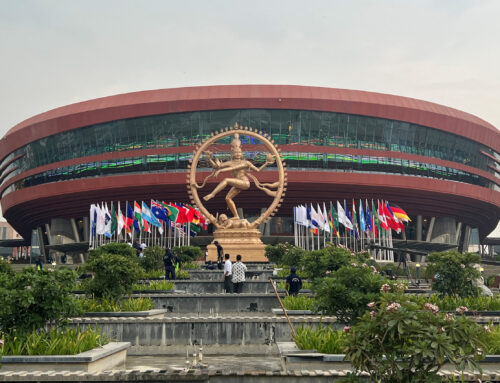G20 FinTech Roundup: Digitalization, Innovation & Regulation of Crypto Assets
Leaders of the wealthiest nations met this past weekend at the G20 Summit in Buenos Aires to discuss issues that affect the global economy. To that end, they made some advances that will determine how the FinTech & RegTech sectors evolve within the global financial system in the coming years and that should prompt traditional financial services institutions to think about how to engage with this sector. This article summarises commitments that G20 leaders made as related to digitalization, innovation, and the regulation of crypto assets under the theme “Future of Work” discussed at the Summit.
Leaders pledged to “maximize the benefits of digitalization and emerging technologies for innovative growth and productivity.” This includes promoting measures to:
-
Boost micro, small and medium enterprises, and entrepreneurs
-
Bridge the digital gender divide
-
Further digital inclusion
-
Support consumer protection
-
Improve digital government, digital infrastructure, and measurement of the digital economy
To manage cyber risks, the G20 reaffirmed the importance of addressing issues of security in the use of ICTs. They indicated that they would support the free flow of information on a global basis while respecting applicable legal frameworks and work to build consumer trust, privacy, data protection, and intellectual property rights protection.
To capture the benefits of digitalization, the G20 welcomed the development of the G20 Repository of Digital Policies to share and promote the adoption of innovative digital economy business models. The Repository was developed to facilitate information sharing and collaboration between governments to support policymakers in the “design and implementation of evidence-based digitalization policies and strategies.” Leaders indicate that their governments would continue to work on emerging technologies and new business platforms, which is essential as new technologies such as AI, algorithmic data analysis, automation, and distributed ledger technologies continue to evolve.
However, in further recognition of responsible Innovation, the G20 indicated that its members would “step up efforts to ensure that the potential benefits of technology in the financial sector can be realized while risks are mitigated.” This led directly to the G20’s statement that they will bring crypto-assets into the anti-money laundering (AML) and counter-terrorist financing (CTF) regulatory framework and would consider other responses as needed. This commitment follows the October 2018 amendment issued by the Financial Action Task Force (FATF) – the global AML/CTF standard-setter – to its 40 Recommendations calling for the regulation of virtual assets. The FATF amended Recommendation 15 by adding the following paragraph to the section on new technologies:
…To manage and mitigate the risks emerging from virtual assets, countries should ensure that virtual asset service providers are regulated for anti-money laundering and counter-terrorist financing purposes and licensed or registered and subject to effective systems for monitoring and ensuring compliance with the relevant measures called for in the FATF Recommendations.
While it is great that these commitments have been made, it now follows to leaders to make sure that their nations follow suit and develop practical ways of implementing the above recommendations. In doing so, given the technical nature of advances being made in digitization, innovation and crypto assets, it is essential that governments promote collaboration and cooperation with relevant stakeholders either through existing public-private sector partnerships or the development of cooperative models that generate engagement with actors that are active in these sectors.
For companies working in this sector, they should look to engage with local regulators and sandboxes being developed in their respective jurisdictions to ensure that operational realities of introducing new technology are being taken into account as local law and policy are being formed. While regulation is necessary to protect consumers and the integrity of the global financial system, there is a need to ensure that it does not stifle or act as a barrier to innovation, productivity, and growth.
5 December 2018
Published on LinkedIn
Download “G20 FinTech Roundup G20BuenoAires.pdf”
G20-FinTech-Roundup_G20BuenoAires_5Dec2018.pdf – Downloaded 904 times – 365 KB




